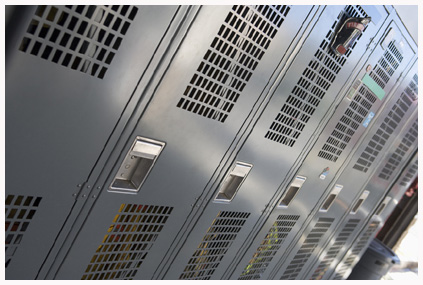 The following article originally appeared in the October newsletter to clients of FMI Corporation. Reprinted with permission.
The following article originally appeared in the October newsletter to clients of FMI Corporation. Reprinted with permission.
The title for this piece comes from a founding principle at Champions Club in Houston, Texas, built by Masters Champions Jackie Burke and Jimmy Demaret, well-known popular tour players. In the mid-’50s, they built this course around a three-part vision. First, the course design would be innovative with massive greens and long tees. This would allow the individual holes to play very differently, depending on tee markers and hole placements. This thinking influences course design yet today. Second, they wanted to attract major championship events, which they have done. The U.S. Open, Ryder Cup and the Tour Championship have all been contested there; the U.S. Women’s Open will be there in 2020. Finally, they wanted to attract members with both character strength and competency, who played golf and life by rules, so that the club would become a community of trust and skill. And to symbolize this, they installed full-length lockers that close but do not lock. Today they have 600 members (they built a second course); every member has a handicap (a measure of competency) of 14 or less; 400 are single-digit handicappers; and Rolexes, TAG Heuers, credit cards and wads of bills are left in lockers that don’t lock. They have never had a theft.
Using that phrase as a metaphor for trust and trustworthiness prompts introspection and examination. Starting with ourselves and the way we do business, do people need to lock their lockers? Looking at the company culture we have developed and now demonstrate, and the type of talent we attract, can we have lockers that don’t lock? And how about the clients, building partners and support professionals on our projects – any need to lock up?
Trust is a valuable currency, perhaps the most valuable. The late Stephen Covey, a respected teacher and consultant, has a son, also named Stephen, who has written a worthwhile book, The Speed of Trust. His thesis is that in all business relationships, three is either a “trust tax” which generates endless rechecking and delay, or there is a “trust dividend” which generates acceleration and higher performance. Most of us have experienced both sides of this maxim; we get his point.
The essence of generating trust as individuals, as companies, as collaborative teams is to be trustworthy ourselves in all dealings. This magnetic quality drives from our character, our desire to keep our word – to do what we say we will do. Competency is also a component of trustworthiness; people rely on you, your company and your project teams to perform at championship levels, consistently. As you deliver top-flight results, it is reinforced that they can trust you; this has positive impact for future work.
The recent response to the devastation of Hurricane Harvey at the human level showed Houstonians have an open-locker culture. Strangers rallied instantly, intuitively to help the needy – opening their hearts, homes and wallets. Construction companies and their leaders strengthened their high-trust cultures, rescuing employees, rebuilding quickly where possible, keeping people whole. It was a proud moment for the city and the industry. Life is much richer when lockers do not need to be locked.
Lockers That Don’t Lock
by Pat Kiley | October 11, 2017


